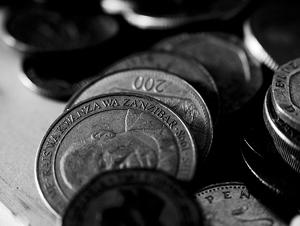Financial crisis: the cost to Africa
(image: localsurfer/Flickr)
The financial crisis shaking major economies could become a human crisis in the developing world, according to World Bank President Robert Zoellig. He says that the shock waves in global markets could ultimately trigger business failures and bank emergencies in poorer nations, and that would disproportionately hurt millions of people who are already suffering from higher food and fuel prices.
International economists are sounding the alarm as well. Jean-Pierre Lehmann is founding member of the Evian Group, a think tank focusing on the international economy in the era of globalization. Lehmann told us that the financial crisis could have a long-term impact on developing countries.
"It’s going to be significant in the sense that we’re going to be seeing a lot of money that should be going towards development, going towards sustainability being used to try and clean up the financial mess, so, yes, it will have a very negative effect, probably over the course of the next couple of years," says Lehmann. "In terms of investment, in terms of priorities, people are going to be much more worried about this immediate crisis we have, rather than the crises that are looming down the road."
When asked to pinpoint a region that would be most greatly affected by this shift, Lehmann responded, "Africa." This is because Africa has already been rocked by unstable governments, corruption, and the consequences of global climate change.
PRI’s "The World" is a one-hour, weekday radio news magazine offering a mix of news, features, interviews, and music from around the globe. "The World" is a co-production of the BBC World Service, PRI and WGBH Boston.
